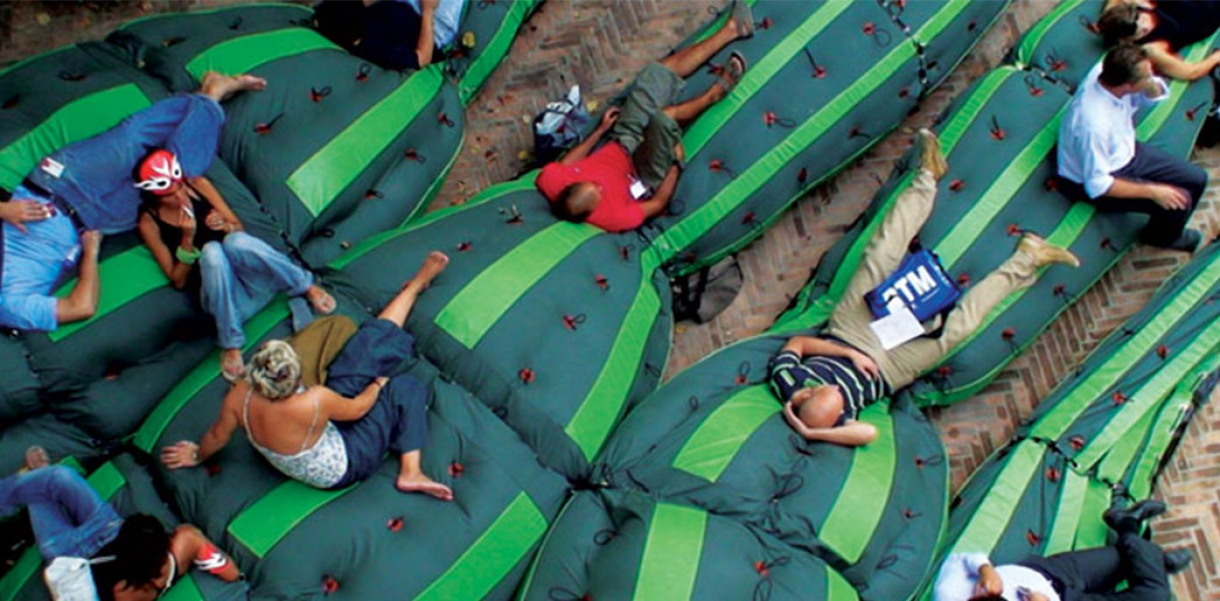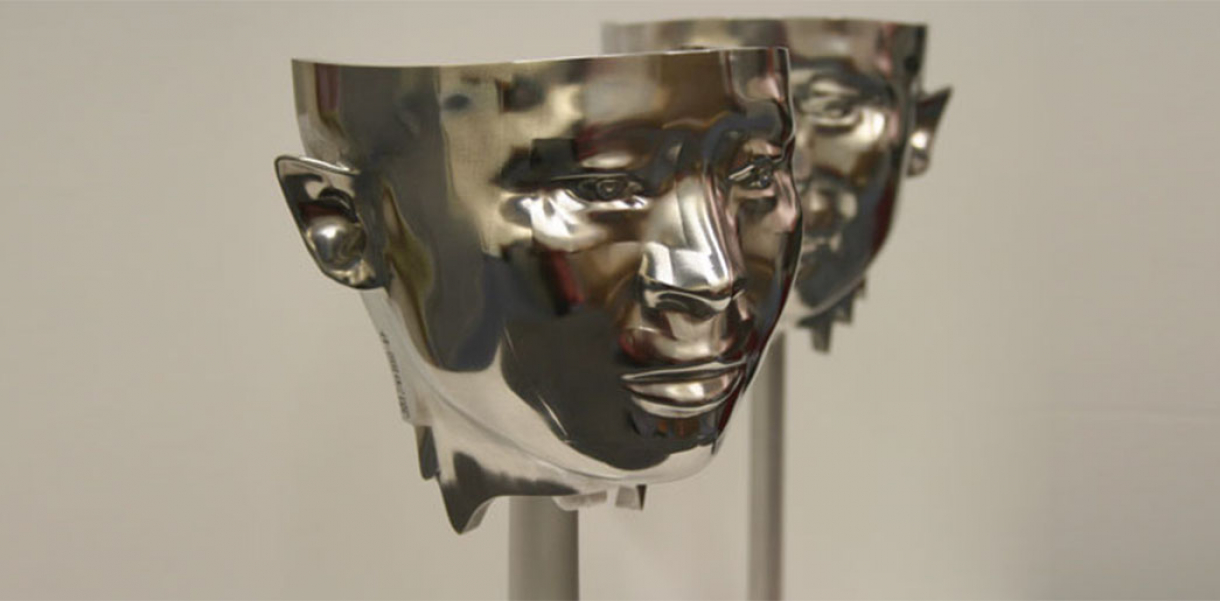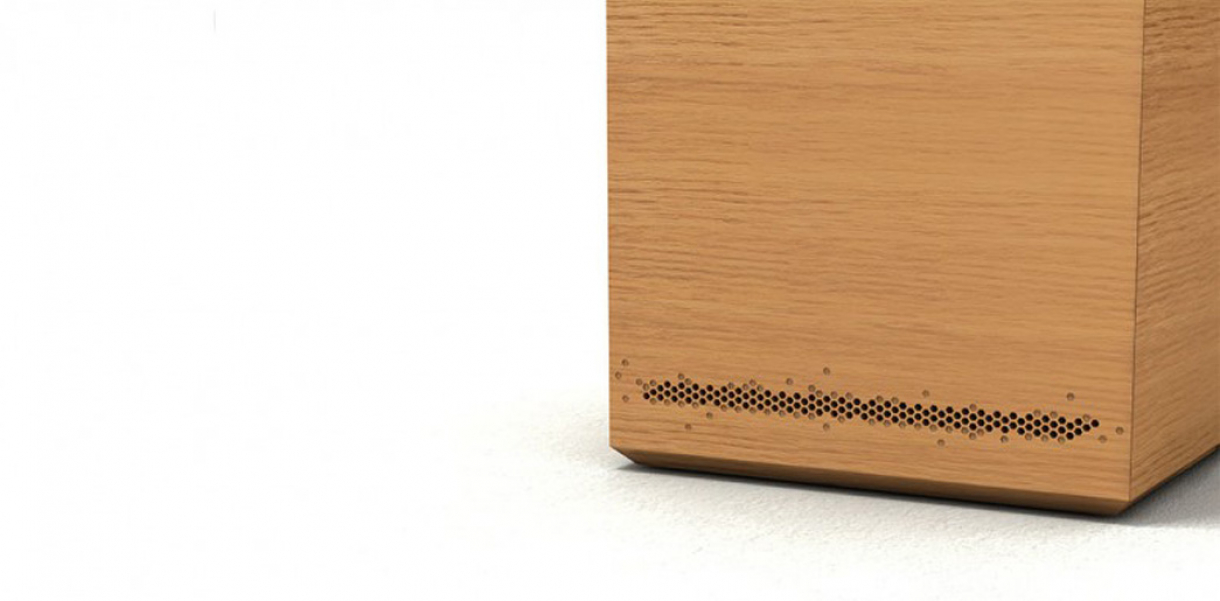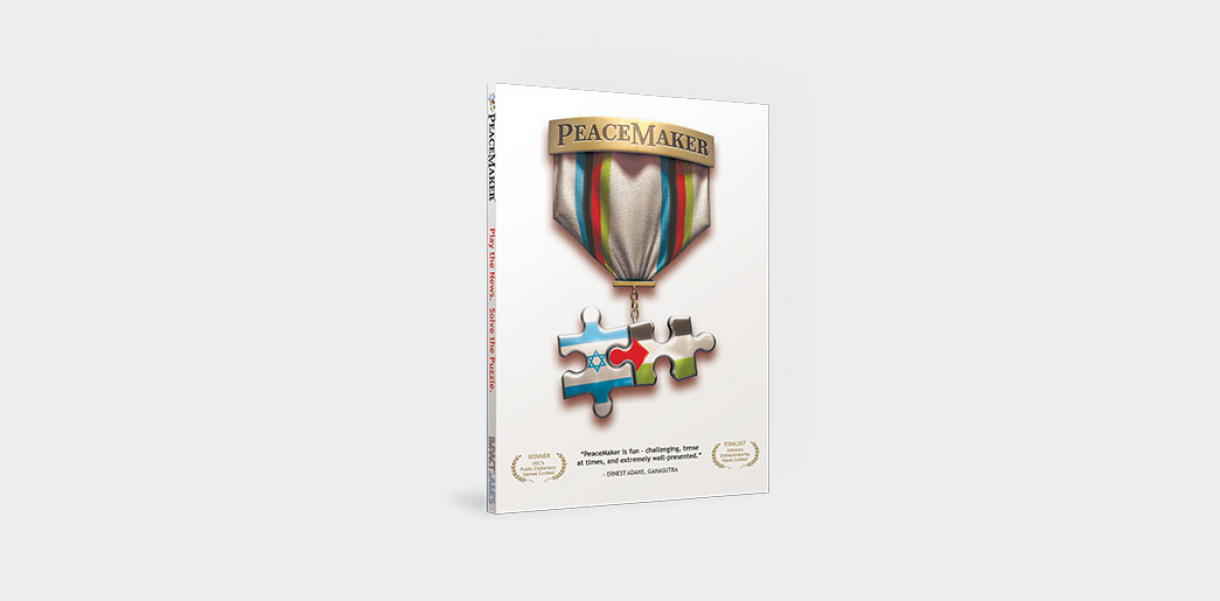The aftermath of Hurricane Katrina’s strike on New Orleans (US) was twofold: First, the hardened barriers to floodwaters failed to prevent catastrophic destruction; and second, in non-flooding conditions, the flood walls are inconvenient and restrictive of a society living on the banks of the Mississippi River.
The Alluvial Sponge Comb may be the friendliest approach yet to floodwater control in urban areas. The word “alluvial” refers to sediment — the sand, stones, and other debris that is usually swept along by water in rivers and on beachfronts, a natural action in bodies of water.
While a hard wall approach simply tries to knock the waters back, the Sponge Comb grows larger and larger as water is trapped inside its absorption materials, swelling into a temporary embankment, or levee as they’re known in New Orleans. Once the high waters subside, the Sponge Comb dries into what it was originally, a kind of soft street furniture.
The super-absorbent material inside the Comb’s large fingers was primarily manufacturered for use in diapers. The material expands when it absorbs moisture and then shrinks when it dries out in the sun.
“Part of the idea is that erosion is slowed down because plants and silt build up between the fingers of the Sponge Comb” — that “alluvial” function of debris-gathering natural to bodies of water,” explained designer Mark Anderson, who developed the solution with brother Peter Anderson. “One concept is to have the things staked into the sand, attract the sand to the beach and then decompose as it becomes buried in the sand and is part of the beach.”
Overall, the design creates a more symbiotic and playful relationship with waterfronts, rather than concrete walls, allowing people and animals to move back and forth to the waterfront in both dry and wet times.
“Society has tried to make our cities’ systems separate from flooding, which disrupts the systems of nature, of course,” explains Mark. “We always think, instead, about the connection of the water and the city.”
Designed by
Mark Anderson (AIA), Peter Anderson (FAIA) - San Francisco, USA
Website
www.AndersonAnderson.com




